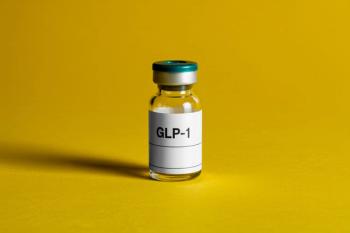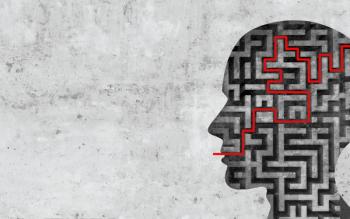
- Psychiatric Times Vol 18 No 11
- Volume 18
- Issue 11
Resources for Coping With Disaster
Since Sept. 11, health care professionals and their patients have been trying to make sense of the tragedy as well as cope with the possibility of future attacks. While the following list of books, articles, Web sites and so forth is certainly not exhaustive, it serves as a starting point of information sharing.
Since Sept. 11, health care professionals and their patients have been trying to make sense of the tragedy as well as cope with the possibility of future attacks. While the following list of books, articles, Web sites and so forth is certainly not exhaustive, it serves as a starting point of information sharing.
We envision this resource to be an evolving database. To do so, we need your help. If there are other resources you find especially helpful,
Books
Assessing Psychological Trauma and PTSD.
John P. Wilson, Ph.D., Terence M. Keane, Ph.D., eds.
New York: Guilford Press (1996)
Theories, standardized measures and physiological techniques used in the assessment of traumatic stress syndromes are discussed. Another area of focus is context-specific traumatic reactions of victim and survivor populations.
Effective Treatments for PTSD
by Edna B. Foa, Ph.D., Terence M. Keane, Ph.D., Matthew J. Friedman, M.D., Ph.D., eds.
New York: Guilford Press (2000)
Developed under the auspices of the Postraumatic Stress Disorder (PTSD) Treatment Guidelines Task Force of the International Society for Traumatic Stress Studies, this book discusses an array of treatment options for children, adolescents and adults. Acute interventions, cognitive-behavioral therapy, pharmacotherapy, eye movement desensitization and reprocessing, group therapy, psychodynamic therapy, inpatient treatment, psychosocial rehabilitation, hypnosis, and creative therapies are among the approaches covered.
Emotional Aftermath of the Persian Gulf War: Veterans, Families, Communities and Nations
by Robert J. Ursano, M.D., Ann E. Norwood, M.D., eds.
Washington, D.C.: American Psychiatric Press (1996)
The stressors, psychological responses and care needs of Operation Desert Storm veterans are explored. Some relevant chapters include the effects of chemical and biological warfare, management of psychiatric illness in the injured, the effects of mobilization on National Guard and Reserve forces and their families, and the stress of SCUD missile attacks.
Individual and Community Responses to Trauma and Disaster: The Structure of Human Chaos
Robert J. Ursano, M.D., Brian G. McCaughey, D.O., Carol S. Fullerton, Ph.D., eds.
New York: Cambridge University Press (1996)
This volume discusses the nature of traumatic stress and the role of psychosocial context in responses to trauma and disaster, as well as responses to trauma across the lifecycle.
Treating Psychological Trauma & PTSD
by John P. Wilson, Ph.D., Matthew J. Friedman, M.D., Ph.D., Jacob D. Lindy, M.D., eds.
New York: Guilford Publications (2001)
The editors identify 65 PTSD symptoms contained within five symptom clusters and describe 80 target objectives for treatment. Expert contributors provide detailed presentations of core therapeutic approaches as well as approaches to working with specific populations, such as children and refugees.
Web Sites
American Academy of Child and Adolescent Psychiatry (AACAP)
<
AACAP has gathered together a "disaster relief kit," which includes publications to assist parents and children dealing with the Sept. 11 tragedy.
American College of Occupational and Environmental Medicine
<
The Mental Health Committee and the Council on Scientific Affairs of the American College of Occupational and Environmental Medicine has prepared a set of response guidelines for employers dealing with psychological trauma of the events of Sept. 11. The guidelines cover such topics as three questions often asked by survivors and emergency response team members and how to approach an employee in distress.
American Psychiatric Association's Committee on Psychiatric Dimensions of Disaster
<
This site provides resources on immediate responses to disaster, such as debriefing following trauma and managing the stress of those who must recover the bodies, as well as links and references for further information on disasters. Several publications offering victim-specific recommendations, such as "Helping Children Cope with a National Tragedy" and "Teachers Helping Students: Listening and Talking," are also provided.
Center for Mental Health Services (CMHS)
<
The CMHS works in partnership with the Federal Emergency Management Agency to oversee national efforts to provide emergency mental health services to survivors of disasters. The Web site provides links to such online, full-text booklets as Field Manual for Mental Health and Human Service Workers in Major Disasters, Responding to the Needs of People With Serious and Persistent Mental Illness in Times of Major Disaster, and Psychosocial Issues for Older Adults in Disasters.
Freedom From Fear
<
Geared toward patients, this site provides answers to frequently asked questions on medication and psychotherapy options for anxiety disorders as well as discussion on such topics as "Comorbidity, Impairment, and Suicidality in Subthreshold PTSD" and "Help in Moving Past Trauma."
International Society for Traumatic Stress Studies
<
Fact sheets on treating survivors in the acute aftermath of traumatic events and acute responses to traumatic stress as well as links to specialized trauma resources and organizations are provided on the site. Resources for the media and the public are also included; therefore, mental health care professionals can also recommend this source to their patients.
National Alliance for the Mentally Ill (NAMI)
<
NAMI has posted a brief list of resources on how to deal with the impact of terrorism and traumatic events, including a Spanish language fact sheet on PTSD and links to counseling services in New York City.
National Organization for Victim Assistance (NOVA)
<
This nonprofit organization has posted several articles to help survivors of the terrorist attacks, including "Long-Term Stress Reactions to Terrorism" and "Surviving the Holidays After Sept. 11, 2001: Ten Thoughts on Coping."
National Institute of Mental Health (NIMH)
<
In a special section called "Response to Terrorist Acts Against America," NIMH has provided links to several online and print resources, including "Helping Children and Adolescents Cope with Violence and Disaster" and "Facts About Anxiety Disorders."
National Mental Health Association
<
The National Mental Health Association provides links to several online, full-text publications including "When to Seek Help" and "Helping Your Workforce Cope and Return to Work."
PTSD Alliance (a coalition of the Anxiety Disorders Association of America, the International Society for Traumatic Stress Studies, the Sidran Traumatic Stress Foundation, and the American College of Obstetricians and Gynecologists)
<
The PTSD Alliance offers free educational booklets, videos and other trauma-related resources for professionals working with PTSD patients and trauma survivors, as well as the survivors' families.
Disaster Psychiatry Outreach
<
Disaster Psychiatry Outreach is a non-profit volunteer organization of psychiatrists committed to providing high quality disaster mental health care services. This site provides information about the most recent developments, new initiatives and ways for professionals to provide help to disaster victims. The current focus is the Sept. 11 relief effort.
Articles and Booklets
"Biological Responses to Disasters"
by Arieh Y. Shalev, M.D.
Psychiatr Q (2000); 71(3):277-288
Available at:
Accessed Nov. 7, 2001.
"Coping With Disaster: Suggestions for Helping Children With Cognitive Disabilities"
by Anne Farrell, Ph.D., and Daniel Crimmins, Ph.D
Administration for Children and Families, U.S. Department of Health and Human Services (2001)
Available at:
Accessed Nov. 8.
"Debriefing Following Trauma"
by Carol S. Fullerton, Ph.D., Robert J. Ursano, M.D., Kelley Vance, M.P.H., Lemming Wang, M.S.
Psychiatr Q (2000); 71(3):259-276
Available at:
Accessed Nov. 7, 2001.
"Disaster Mental Health: Crisis Counseling Programs for the Rural Community"
by Glenn Jackson, M.Div., LSW, LCPC, and Charles G. Cook, LSW
Substance Abuse and Mental Health Services Administration (1999)
DHHS Publication No. SMA 99-3378.
Available at:
Accessed Nov. 8, 2001.
"Disaster Psychiatry: Principles and Practice"
by Ann E. Norwood, M.D., Robert J. Ursano, M.D., Carol S. Fullerton, Ph.D.
Psychiatr Q (2000); 71(3):207-226
Available at:
Accessed Nov. 7, 2001.
"Field Manual for Mental Health and Human Service Workers in Major Disasters"
by Deborah J. DeWolfe
Substance Abuse and Mental Health Administration (2000)
DHHS Publication No. ADM 90-537
Available at:
Accessed Nov. 8, 2001.
"Psychiatric Issues in Medical-surgical Disaster Casualties: A Consultation-liaison Approach"
by James R. Rundell, M.D.
Psychiatr Q (2000); 71(3):245-258.
Available at:
Accessed Nov. 7, 2001.
"Stress and Vulnerability to Posttraumatic Stress Disorder in Children and Adolescents"
by Raul R. Silva, M.D., Murray Alpert, Ph.D., Dinohra M. Munoz, M.D., Sanjay Singh, M.D., Fred Matzner, M.D., and Steven Dummit, M.D.
Am J Psychiatry (2000); 157(8):1229-1235
Available at:
Accessed Nov. 8, 2001.
"What is posttraumatic stress disorder?"
by Arieh Y. Shalev, M.D.
J Clin Psychiatry (2001); 62(suppl 17):4-10.
(c) CME LLC
11/01
Articles in this issue
over 24 years ago
Investigational Agents and Methodologies at NCDEUover 24 years ago
Naked Before Traumaover 24 years ago
A Conceptual Structure for Diagnosesover 24 years ago
There Are Only Three Kinds of Psychotherapyover 24 years ago
Psychiatrists in the Midst of the Horrorover 24 years ago
Cautious Wake-Up Call for Bioterrorismover 24 years ago
How the News Comesover 24 years ago
Executive Functions in Parents With ADHDover 24 years ago
Obsessive-Compulsive Symptoms in Schizophreniaover 24 years ago
Posttraumatic Spectrum Disorder: A Radical RevisionNewsletter
Receive trusted psychiatric news, expert analysis, and clinical insights — subscribe today to support your practice and your patients.






